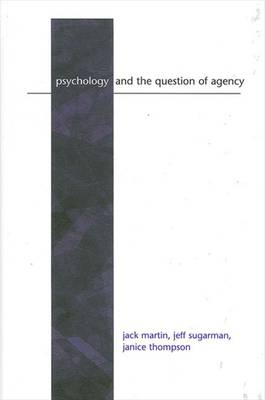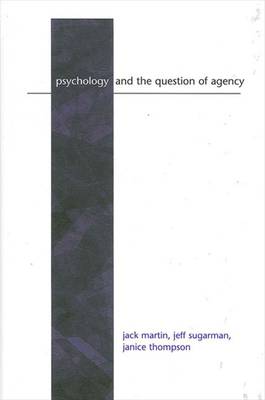
- Afhalen na 1 uur in een winkel met voorraad
- Gratis thuislevering in België vanaf € 30
- Ruim aanbod met 7 miljoen producten
- Afhalen na 1 uur in een winkel met voorraad
- Gratis thuislevering in België vanaf € 30
- Ruim aanbod met 7 miljoen producten
Omschrijving
Looks at the limits of free will in human action.
Disciplinary psychology has failed to achieve a coherent conception of human agency. Instead, it oscillates between two differing conceptions of agency that are equally untenable: a scientistic, reductive approach to choice and action, and an instrumental approach that celebrates a romantic notion of free will. This book examines theoretical, philosophical psychology and argues for a historically and socioculturally situated human capacity for choosing and acting in ways not entirely determined by culture and/or biology. The authors present a detailed developmental theory of how agentic capability emerges from the pre-reflective activity of humans in a real physical and social world. Implications of the theory are considered for psychological research and practice, and for the broader socio-political impact of disciplinary psychology in Western liberal democracies.
Specificaties
Betrokkenen
- Auteur(s):
- Uitgeverij:
Inhoud
- Aantal bladzijden:
- 196
- Taal:
- Engels
- Reeks:
Eigenschappen
- Productcode (EAN):
- 9780791457269
- Verschijningsdatum:
- 8/05/2003
- Uitvoering:
- Paperback
- Formaat:
- Trade paperback (VS)
- Afmetingen:
- 150 mm x 230 mm
- Gewicht:
- 267 g

Alleen bij Standaard Boekhandel
Beoordelingen
We publiceren alleen reviews die voldoen aan de voorwaarden voor reviews. Bekijk onze voorwaarden voor reviews.











